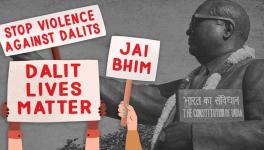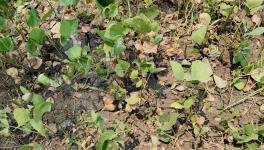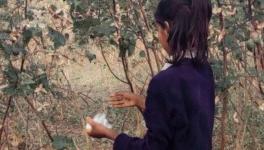Report Shows Crimes in the Name of Honour Target Dalit Community
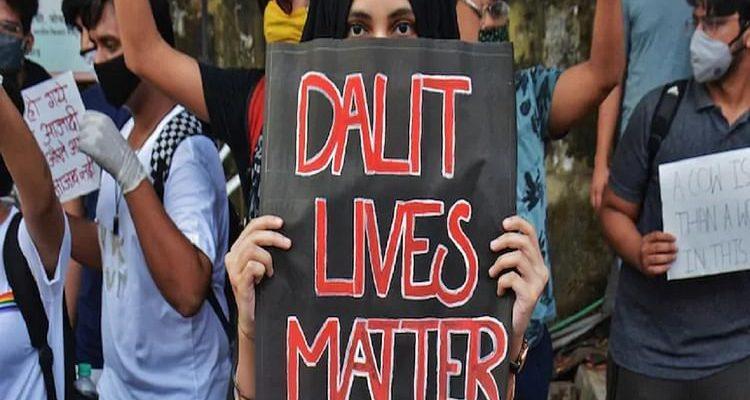
Image Courtesy: PTI
A recent research report has revealed that over the last decade, most victims of honour killing were Scheduled Caste men who dared to love or marry beyond caste barriers.
The Dalit Human Rights Defender Network (DHRDNet) and the National Council of Women Leaders (NCWL) published a research report through on-ground research and intervention with survivors/victims of honour-based crimes in seven states: Haryana, Bihar, Gujarat, Rajasthan, Tamil Nadu, Maharashtra, and Uttar Pradesh. The report includes 24 cases from 2012 to 2021 for a thorough analysis and thematic origination.
In 24 cases, 20 victims were men who were either killed or grievously injured by their partners’ families. Most victims/survivors were from the Scheduled Caste community across the eight states surveyed. Women from dominant caste groups were forced to leave their relationships or marriages, withdraw from education, go missing, and be grievously injured or killed. Of the women killed, two are from the Other Backward Classes and one from the De-Notified Tribes (DNT) community.
All these incidents reveal that women from dominant castes who tried to choose their life partners across caste boundaries were kept under surveillance and their families restricted their movements through cultural codes and violence. Most of the women wanted to move away from the oppressiveness of their families. Their aspirations for a happy life with a partner of their choice were brutally nipped in the bud by violent and misogynistic men of their families and, in one case, the larger community, the report shows.
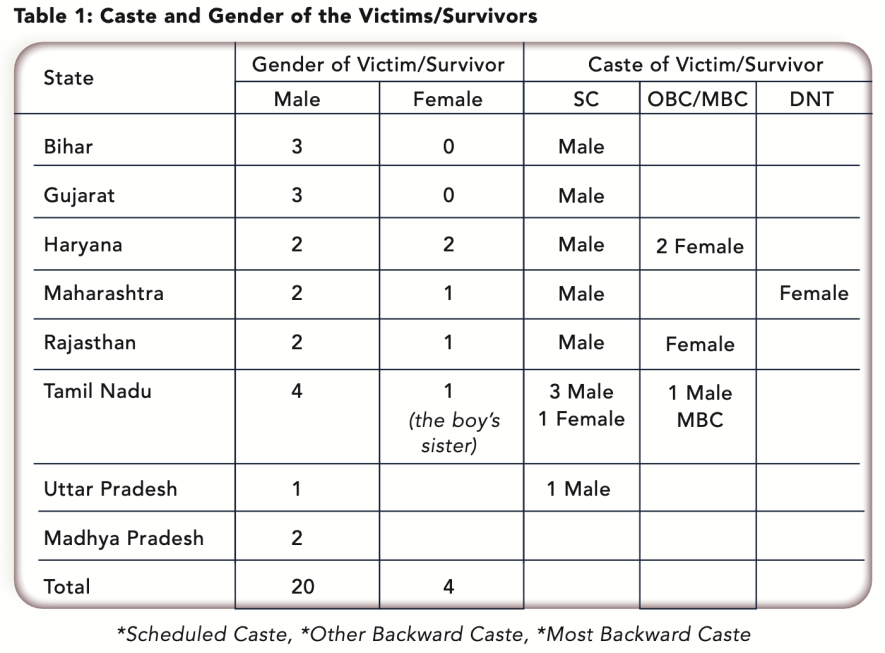
HARYANA
The report analyses four cases from Haryana in 2016, 2017, 2018, and 2020. Every case analysed in Haryana had one thing in common: hatred against inter-caste relationships.
In one case, the dominant caste woman’s family employed goons to kill her. Meanwhile, her partner from the SC community is on the run because his dead partner’s family has filed charges of kidnapping and assault against him. In another case, a Jat girl’s family forced her to drink poison and was cremated. Her partner and the partner’s family found this out only after they filed a case against the woman’s family members.
In Kharakhoda, Sonipat, a whole family was wiped out. In this case, a man from the Dalit community had married a woman from the Jat community. They were married for four years and had a three-year-old child. The man’s family was attacked by goons hired by his in-law’s family, resulting in his and his parents’ death. His brother and sister-in-law were gravely injured, which eventually became the cause of their death.
GUJARAT
For Gujarat, the report focused on three honour killings in Mehsana, Gandhidham and Una between 2012 and 2019.
In one case, it is not clear if the victim, a Dalit man, was in a relationship with a woman from the Koli community. However, the woman had run away from her family and sought refuge in the home of the Dalit man, which raised suspicion of a possible relationship and ‘dishonour’ being brought to her family. This led to her family members entering the victim’s home and burning him alive.
In another case, a 25-year-old Dalit man was murdered by his in-laws from the upper-caste background in Varmor Village, Ahmedabad. According to the police, he was hacked to death by eight men outside his wife’s parent’s house in the presence of a women’s helpline team attempting negotiations with the family.
BIHAR
In Bihar, three cases have been covered by the report as recently as 2021 and are from Muzaffarpur, Dhaka, and Rohtas. In one of the three cases, a boy from a Dalit community and a girl from an OBC (dominant caste) community studied and pursued their intermediate in a school together when they developed a romantic relationship. After about 18 months of the relationship, they eloped and married in a Hindu temple in Gujarat. Eight months after eloping, they returned to their respective families, who requested them to do so. The OBC girl’s family concocted a story and registered an FIR, alleging that the boy and his family had kidnapped the girl and forced her into marriage. This resulted in the boy being on the run and the family being hounded by the police. Meanwhile, the girl suffered from extreme trauma and was forced to drop out of school and into a marriage of her family’s choosing.
RAJASTHAN
DHRDNet has covered three cases of honour crimes in Rajasthan, from Dausa (2021) and Jaipur (2021, 2016). In the first case, the Dalit man and the Brahman woman were physiotherapists involved in a consensual relationship. The man was thoroughly humiliated by the woman’s family and the police, which led to him throwing himself under a train in February 2021. He left behind a 15-page-long suicide note and videos explaining that he could not handle the harassment. Till the release of the report, no case under the SC/ST Act has been filed in the special court against the family, nor has an FIR been lodged.
In the second case, a Dalit man was married to a Rajput woman, who had two sons. He was the family’s sole breadwinner. He was on his way to his farmland to drop his family off when he was intercepted by a man from the Rajput community who threatened him that he would die before the end of the day. This man had no relations to the family. Still, perhaps the fact that a Dalit man could get married to a Rajput woman was unbearable for him. That very night, the husband was murdered.
In the third case, a girl from the Saini caste was married against her wishes by her family while still in a relationship with a Dalit man living in the same locality. After her marriage, she returned to live at her paternal home for a few days when she decided to elope with her partner. Her family reported this to the police and filed an abduction case against her partner. Eventually, she was abducted from her partner’s house by her family. Two days later, her father confessed to the police had murdered his daughter. While the family has been paid compensation under the SC/ST PoA Act and given police protection, they live in a locality dominated by the upper caste, which causes them to stay in constant fear, depression, and stress.
UTTAR PRADESH
Uttar Pradesh is one of the states with high rates of both crimes against the SC/ST as well as crimes against women. However, only one case in Gorakhpur has been covered in the research report. A Dalit man and a Brahman woman, educated and working at the Gram Panchayat in different capacities, decided to marry each other. The woman’s family felt ‘dishonoured’ by her decision and murdered the man. The woman still lives with her in-laws as a sole earning member and a mother to a recently born child.
MAHARASHTRA
In Maharashtra, DHRDNet analysed two cases, one in 2019 and the other in 2020. In the first case, an inter-caste relationship developed between a Dalit boy and a girl from the Maratha community, who were in college. Men from the Maratha community killed the boy because of the relationship on June 7, 2020. According to the boy’s close friends, his partner’s family had warned him two months before his death that he would face dire consequences if he did not end the relationship. The police arrested four of the six accused, who were minors and were released on bail by the Juvenile Justice Board (JJB). Although the incident occurred on June 7, the police registered an FIR only a day later.
In the second case, a couple in a village in Ahmednagar district was in a relationship and looking forward to getting married. The girl’s family opposed this because the boy was from the Lohar community (OBC) while she was from the Passi (DNT) community. They ran away and tied the knot in a private ceremony. Six months later, they were both burnt alive by the girl’s kin. The girl died, but her husband survived and continues to battle for life. The girl’s family absconded to their ancestral place in Uttar Pradesh and filed a false case of murder of the girl against him. Due to this, he has been arrested, and according to his family, he has been threatened and beaten up in jail. A Dalit rights organisation is trying to help the victim with the legal fight.
MADHYA PRADESH
The DHRD reported two honour crimes from Madhya Pradesh: one in the Chhatarpur district and another in Damoh. In the first case, a Dalit man married a girl from the Thakur community in 2012. This caused conflict between the two families, and fearing for their lives, Rajkumar and Deepa fled the village and settled in Ludhiana. They had two sons and were happily married, with Rajkumar working as a mason in Ludhiana. Despite being married for many years, the girl's family still held strong caste prejudices. To "restore the family's honour," a male relative of the girl and his friend took inspiration from a Marathi film called "Sairat." The relative visited the couple multiple times to re-establish contact and make them comfortable. Eventually, he and his friend stayed at the couple's house in Ludhiana. The next day, they asked the husband to give them a ride on his motorcycle to the railway station. On the way, near a deserted canal in Sahnewal town, they slit his throat, stabbed him multiple times and left him to die. A male relative called the girl and told her that her husband had been murdered. He threatened to do the same to her family. Then, she filed a complaint against the relative and his friend. The accused were caught in Uttar Pradesh and handed over to the Punjab Police.
In another instance, a man from the Dalit community and a woman from a Brahmin caste had difficulty getting married. Despite the opposition from the woman's family, they were able to get married. The police initially tried to halt the wedding due to complaints from the woman's family but eventually let the marriage proceed when they realised both parties were of legal age. The feud between the two families continued, with both filing complaints at police stations. On August 28, 2017, the father of the Dalit man was attacked by members of the woman’s family on his way to the nearby market. His attackers fled, leaving him bleeding on the road. His family took him to the District Hospital at Damoh but he was declared dead upon arrival.
TAMIL NADU
The DHRD identified five significant cases of honour crimes in Tamil Nadu from 2016 to 2021 in Madurai, Tirupur, Karur, Thoothukudi district village, and Dindigul.
One instance of an honour crime involved the murder of a Dalit boy's father. The boy was in a relationship with a girl from the dominant Asari caste in their village. The father was killed by her family members, who opposed her relationship and refused to accept the marriage proposal from the boy's family. The girl was taken away from the village and kept under house arrest at a relative's house. She managed to escape and went to meet her boyfriend. He was scared of threats to their lives and tried to convince her to return to her parent's house, but she refused as she wanted to marry him. The parents then insulted the boy's family with caste-based slurs and attacked the boy's father with a machete, injuring his hand. The father and son were taken to the hospital, but the son's injuries were critical, and he was referred to the Government Rajaji Hospital in Madurai, where he died the next day. The police charged the girl's father with assault, attempted murder, and violating the Scheduled Caste and Scheduled Tribes (Prevention of Atrocities) Act 2015. After the boy's father died, the case became a murder investigation.
In the second case, a Dalit man who worked as a medical representative at Dindigul Gandhigram University's health department had a relationship with a Maravar girl who was a nurse at a primary health centre in Palani. The girl's family found out and took her back to their village. The man tried to take her to another district, but her father refused. The man attempted to overpower the father. In response, the girl's mother and relative allegedly killed him with a sickle. They surrendered to the Thevarkulam police. After Dalit activists intervened, a case was filed under the SC/ST Act, and the boy's family received compensation of Rs 8,25,000.
In a third incident, the parents of a girl from a dominant caste background hacked the pregnant older sister of a Dalit boy from Ilangonagai village in Tirunelveli district. The girl's father thought the older sister had assisted her brother in eloping with their daughter.
In 2021, a Dalit boy and a girl from the dominant Chettiyar community were in a relationship in Keerathurai Street Karur. The girl wanted to marry the boy and informed his parents of her intentions. On January 6, 2021, a girl’s family members attacked a boy and his uncle while passing through the Karur Kalyana Pasupathiswarar temple. Members of the girls’ family—father and uncles—began following them and yelling at him: “You belong to a barber family. Do you need a girl from our community?” The attackers made casteist remarks, assaulted the boy with a stone, and stabbed his head, face, and chest. The boy's father and relatives tried to rescue him when he cried out but were threatened with a knife and had to flee. Two eyewitnesses ensured the perpetrators were caught and imprisoned.
The role of DHRDNet has been beyond mere intervention to compile a research report but to extend support to the victims/survivors of honour crimes. In 19 cases, FIRs were lodged, and 16 cases were registered under the SC/ST PoA Act. Furthermore, they also followed up on the status of the complaints, provided support to the victims, survivors, and their families ensured that they received compensation as dictated by the necessary law. In Tamil Nadu, the activists also provided counselling support to the victims.
Recommendations by the DHRD Network
The research report highlights a few disturbing incidents carried out in the name of honour. Honour killings are more prevalent than reported in the official statistics by mainstream media for several reasons, which often risk the lives of the victims/survivors. These cases cannot be reduced to mere murder as they must address the root cause, i.e., caste and patriarchal norms, since it is the transgression of these norms that results in explicit violence.
The responsibility for the redressal lies with the State in partnership with survivors and civil society organisations. The State must recognise the struggles that inter-case couples have to go through and protect them against a community-led form of violence, which goes against the Constitutional right to choose one’s partners so as long as people are of legal age, the report said.
The research report suggests three critical aspects while dealing with honour crimes: preventive measures, protective and rehabilitation measures, and redress mechanisms and support.
-
Preventive measures: The government must develop an intersectional approach in all their policies and programmes since such crimes occur on the lines of more than one identity, i.e., caste, class, and gender.
-
Protective and rehabilitation measures: Providing safe housing for at-risk inter-caste couples from families or communities. Compensation provided to the grieved must be satisfactory.
-
Redress Mechanisms and Support: A dedicated legislation must be drafted and implemented to deal with crimes in the name of honour. Access to legal aid and other services for that victim to honour crimes.
Ankush Pal is pursuing studies in Sociology at Jamia Millia Islamia, New Delhi. He writes about the intersections of various identities, and the power structures they operate within and perpetuate.
Get the latest reports & analysis with people's perspective on Protests, movements & deep analytical videos, discussions of the current affairs in your Telegram app. Subscribe to NewsClick's Telegram channel & get Real-Time updates on stories, as they get published on our website.









